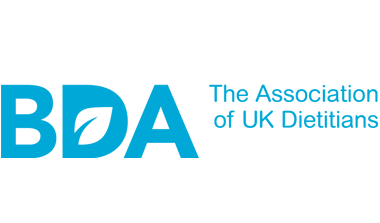Muscle Health, Nutrition & Ageing
Healthy Diet / Ageing WellMuscles help the body work well. They control the heartbeat, breathing, digestion, movement and lots of other functions. The ageing process can lead to a gradual loss of muscle mass and strength, which starts from the age of 40. This means a muscle loss of around 0.5-1% each year and it can affect anyone including those who are underweight or very overweight. This type of loss is called sarcopenia.
Why is muscle health important?
Loss of muscle mass and strength can make it harder to carry out daily activities leading to a lower quality of life. It can also increase the risk of falls and fractures, which can lead to a loss of independence.
Measuring muscle strength
A hand dynamometer measures hand grip strength (which can show muscle strength) and may be used by a health professional. Changes in strength may be noticed when completing daily activities such as carrying the laundry or shopping, or digging the garden.
Frailty
Frailty is a health state associated with ageing, although becoming frail when getting old is not inevitable. Frailty is a complex condition that includes weight loss, exhaustion, low physical activity, slowness, weakness, reduced ability to carry out day to day activities and reduced quality of life. Sarcopenia is often connected with frailty.
There are a range of simple tests to help identify frailty which include:
- Walking/Gait speed - Taking more than 5 seconds to walk 4 metres
- Timed up-and-go test (TUGT) - Taking more than 10 seconds to get up from a chair, walk three metres, turn around, walk back and sit down again
Muscle health, nutrition and ageing are linked
Muscle health is associated with ageing and physical inactivity. Not eating a nutrient rich diet can also lead to a decline in muscle health and sarcopenia.
Losing weight is not a normal part of ageing.As you get older maintaining your weight is usually best for good health, giving you enough energy to stay well, socialise and be active. There are lots of reasons for why someone’s diet can be limited in nutrients, and why they may have unplanned weight loss. This is referred to as malnutrition.You may need to seek advice from a healthcare professional. They can assess what is affecting your food intake.
What can we do to maintain/improve our muscle health as we age?
Food and drink are fuel for our bodies. Without the right type of fuel, our bodies struggle to work at their best. Good nutrition plays an important role in helping you to maintain healthy strong muscles and bones and with that reducing a risk of a fall.
Resistance activities
Resistance activities increases muscle strength by making your muscles work against a weight or force. Regular resistance activities and a nutrient rich diet is the ideal combination.
Diet
A diet with enough protein, calcium rich diet and daily 10ug vitamin D supplement, has been shown to help maintain or improve muscle health as we age.
Hydration
Good hydration is a vital part of ageing well. Making these lifestyle changes can be challenging for some older adults due to limited mobility, access to food and drink, or lack of motivation. Some activity is good, more is better. However, good nutrition and hydration are still a vital part of ageing well.










































































